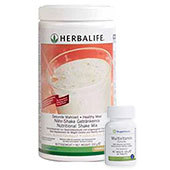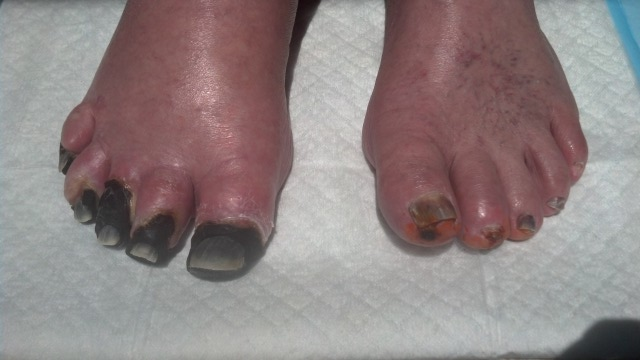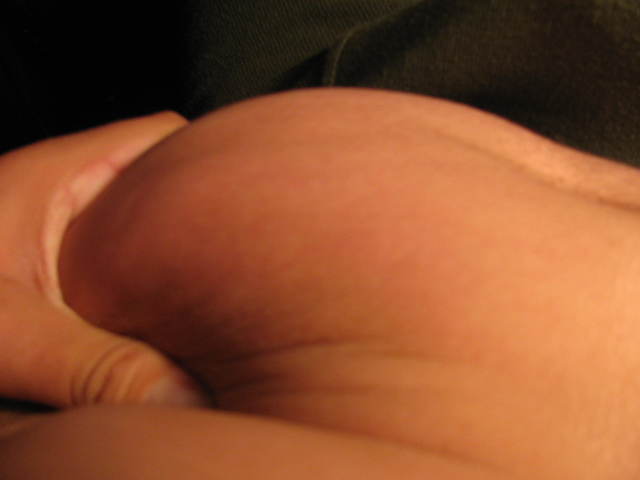follow-up question to:
Question
QUESTION: Hi Laurie,
I'm female, 5'1", age 34 and 134 lbs, and my bmi is 26. Altogether I'm overweight. Weight problem has been a fairly recent thing, probably now that I'm in my mid-30s and my metabolism is slowing. I'm feeling the extra weight in my knees and feet when I stand, run or walk for long periods now. It can be a bit achy or painful. I'm dedicated to getting my weight and bmi down to where it should be.
Continuing to exercise and eat right every day has not been a problem. But I noticed that when I eat foods high in fiber or carbs, I gain 4 lbs overnight. Salad, fruits, bread of any kind, oat bran, rice of any color, and the like, I could eat a serving the morning, afternoon or evening before, and when I step on a scale the next day there's an additional 4-5 lbs. in water weight gain. That's weight gained overnight, and then several days for me to carry around and work off.
Strangely, when I leave the fiber and carbs out - leaving me with a predominantly protein diet - I don't gain weight, though I don't lose it either.
I don't know why keeping fiber and carbs as part of a balanced diet is sending me in the opposite direction of my health goal. Is there a way to keep them in my diet without the price in water weight, or is it best to find alternatives to these foods?
ANSWER: Hi Claire,
It sounds like you know the right things to do for healthy weight loss, and you are trying to do them, but the scale is discouraging you. I'm not sure if drinking more water will help, but I do have another idea.
There are scales that measure your body fat percentage as well as your weight. They are readily available at sporting goods stores and department stores, and also affordable. One good brand I know is Tanita, but there are others. You program the scale (one time) with your height and gender. After that, when you step on the scale, it reads and displays your body weight, and then your body fat (it works by sending a small, undetectable current up one leg and down the other. Fat is resistant to the current, which is easily carried by water, so the instrument calculates your % body fat).
I think if you see on the scale, "Okay, my weight went up to 136, but my body fat reads 26% instead of 29%, so I know that is just water weight" it might make you feel better to realize you didn't gain "fat" weight.
Eventually, from a lower-calorie diet and plenty of activity, the scale will go down in the right direction over time. For example, next month it might be "oh, my weight went up to 134 and I know it'll go back down to 132 after I release the water weight". Keep a chart of your weekly weight so you can view it objectively over time, and try not to be discouraged with temporary water gain.
Also, check on your sodium intake and see that it's kept under 2000 milligrams a day by limiting to <750 milligrams at any one meal. There's a chance that is causing additional water retention.
Good luck!
Laurie
---------- FOLLOW-UP ----------
QUESTION: Thank you so much, Laurie!
I've looked into the Tanita scales, and they look great. Some even tell you your metabolic age, bone density, and water percentage. I didn't know scales could do that! One thing I've certainly never seen before are these segmented scales - the ones that can tell you your water/fat/muscle percentage in your left arm, right arm, trunk, left and right leg.
Curious, when might that kind of information be useful, and could someone even act on that information? I thought the traditional advice was that you can't spot-reduce, so if you carry all your excess fat or water in say, your arms, how would you be able to work fat off on just your arms?
My sodium intake seems to be well under 2000 milligrams a day. Perhaps it's a kidney or liver problem? I'd been limiting carbs and fiber in order to prevent the water gain, which left me with a high protein diet, which from what I understand can lead to your organs overworking themselves to process all that protein. I'm only guessing here, as I'm also guessing this sort of thing probably can't be determined without an organ test from the doc. I'm hoping I've got nothing to worry about, and until I know for sure, I'm not going to act on that worry. But if it is an organ thing, what are the symptoms to look out for, and what can I do to bring organ function back to normal?
ANSWER: Hi Claire,
I had no idea there were scales that could tell the composition of a body limb! You're right, you can't change the fat composition, but I imagine body builders want to see if they are building muscle mass.
You're also correct about not wanting to limit carbs too much because then you end up with a high protein diet that could stress the kidneys.
There aren't always symptoms to heart, kidney or liver problems. I wouldn't suspect one of those solely based on temporary water weight gain.
Kidney function can be easily checked with a blood test. I'm not sure how a doctor evaluates heart issues depending on the problem/symptoms. Most of the patients I see with heart problems have trouble doing even minimal activity without becoming short of breath.
I know a lot of women complain of water weight gain with certain times during their monthly cycle.
If you have health concerns, certainly make an appointment with your physician for a check-up.
Have you lost a pound or two since your first question?!
Laurie
---------- FOLLOW-UP ----------
QUESTION: Haha! Actually, yes, I've lost about 4 pounds since my last question! Thanks for asking, Laurie! But the next day I ate a fist-sized ham sandwich on whole wheat and a salad with quinoa, and I gained those 4 pounds back overnight in water weight. I lost three of those pounds afterwards a few days later and now I'm stuck at 131 lbs. So to recap, I was at 134, I lost 4 pounds in water weight (130 lbs.) then gained it back in water weight (134 lbs. again) and then lost only 3 pounds (stuck at 131). I'm hoping that that stubborn 1 pound is muscle weight that I've built. I've noticed that I'm stronger and things are looking just a tiny bit tighter on my body (granted, I look for changes but who knows what everyone else notices, if anything), so fingers crossed that the remaining one out of four of that water weight is actually muscle, not fat!
My weight seems to fluctuate between 130-134 lbs. but I can never seem to get below 130.
I know that when someone builds muscle, fat loss can happen hand in hand because it takes more fuel for the body to feed those muscles. For me though, it appears that the fat is still hanging out somewhat unchanged over my growing muscles. This is despite me eating 1500 calories daily in whole foods with emphasis on protein, low salt, low sugar, and going to the gym daily without missing a day for almost three months now.
Do you have any recommendations for tipping my metabolism towards more fat burning and breaking through 130?
Claire
Hi Claire,
I don't see the date on these previous questions but I'm certain it's been less than 4 weeks that you've lost 3 pounds. So keep doing what you're doing and if you keep losing 3 pounds a month, you'll be in great shape in no time!
It's interesting that you ate ham--a very high sodium food--and then saw that weight gain. It could be that you tend to retain fluid with a higher sodium intake.
Keep drinking plenty of water (at least 4 cups a day!)
And we haven't even talked about exercise yet!
If you can do something physically active for 30 minutes a day that will help your weight loss as well.
Don't expect to lose 2 pounds a week because you're too small for that! At 1500 calories, which is a very reasonable intake, you might just lose 1/2 pound a week.
Again, keep doing what you're doing and you'll stay on the right track :)
- Prev:Question about weight loss...
- Next:splenda
Related Articles
-
Help... With Weight
Question------------------------- Followup To Question - -----
-
nutrition and breastfeeding
QuestionHello Mrs. Tessmer, I had a baby 3 months ago and I am br
-
Sugars
QuestionMy wife is going through sugar withdrawals. She wants to
-
nutrition issues
QuestionHi Im a 19 year old female circus artist who runs often a
-
Low calorie diets and starvation mode
QuestionQUESTION: If an individual who has a normal BMI wants to
-
Must Lose Weight
QuestionI recently found out that my BMI is now 30, officially ob




